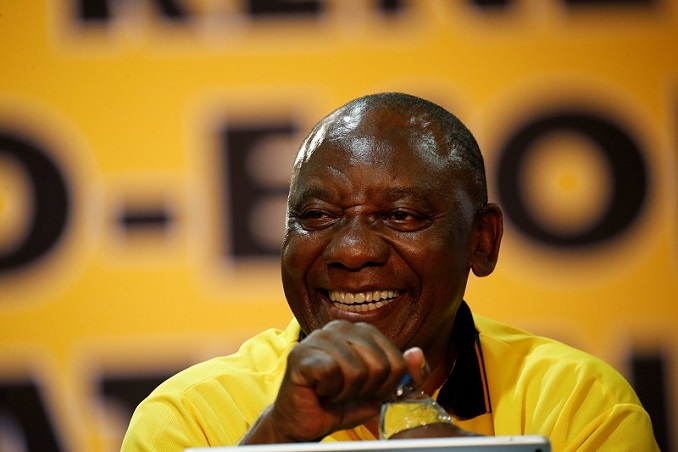Last updated on June 15th, 2022 at 07:33 am
The Economic Freedom Fighters (EFF), South Africa’s left-leaning and third-largest political party, joined the families and survivors of the Marikana mass shooting at the South Gauteng High Court on Thursday, where a multimillion-dollar class-action lawsuit against President Cyril Ramaphosa was being heard.
On August 16, 2012, police in Marikana, South Africa’s North West province, opened fire on hundreds of Lonmin Platinum mine workers who were demonstrating for a monthly basic salary of $800, resulting in 44 deaths, over 70 injuries, and 250 arrests.
The families and workers filed a lawsuit in 2015, which was stalled until recently, asking the court to hold Ramaphosa, who was a non-executive director of Lonmin Platinum at the time of the killings, personally liable for the deadly response of state law enforcement and pay $66 million in compensation.
The families are demoralized by the lack of movement in the case, according to the EFF’s Head of Labour Desk, Hlengiwe Mkhaliphi.
“In Marikana, poor workers were massacred, and there has been no justice for ten years,” Mkhaliphi added. “We want the president to take responsibility for what occurred.”
Related Posts
Political opponents have accused Ramaphosa of exploiting his position in government to influence the state police’s savage response to the demonstration. Ramaphosa was also a shareholder in the struggling Lonmin Platinum at the time of the mass killing.
The Marikana Commission of Enquiry, which was established by the state in 2014 to investigate the shooting, would later investigate leaked emails from Ramaphosa to other Lonmin Platinum shareholders and the minister of security, in which he referred to the protesters as “dastard criminals” and advised law enforcement to take “concomitant action.”
Despite the fact that Ramaphosa was exonerated by the panel, Andries Nkome, a lawyer in the team representing the 329 applicants, claimed that the emails he sent were the catalyst for the lethal police response.
“On the 15th of August, Ramaphosa issued those emails, in which he described what essentially a labor dispute as a criminal conduct was and advocated for ‘concomitant action.'” Workers were mowed down the next day at 4 p.m. He told Al Jazeera that “there is a direct correlation between the emails he sent and the killings.”
“This year commemorates the tenth anniversary of the Marikana tragedy, and the most significant legal advancement we’ve made is that we will finally have our day in court,” Nkome continued.
Ramaphosa told the committee in 2014 that his communications to the government were aimed to avoid more deaths after at least nine people were killed by police in the days leading up to the mass shooting.
“The reference to ‘concomitant action’ in my email letter of August 15, 2012 was to convey that suitable steps should be done to put a stop to the violence and deaths,” Ramaphosa testified. “I was advocating for peace and taking the necessary precautions to save lives.”

